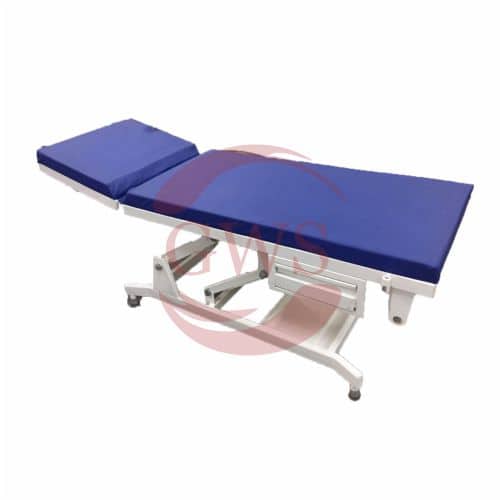One of the most important aspects of any hospital is the quality and variety of equipment they have on hand. This equipment is what allows doctors and nurses to provide quality care to their patients. Because of this, it is important for hospitals to work with reputable and reliable hospital equipment suppliers. By doing so, they can ensure that they have access to the latest and greatest technology available. Additionally, working with a supplier also allows hospitals to save money on medical supplies and equipment.

Hospital equipment suppliers have an important role to play in the post pandemic era. With new and innovative technology becoming available, it is vital for companies to stay ahead of the curve and provide the best possible products and services to their clients..
As the world moves on from the pandemic that was declared in 2020, hospitals are preparing for a new era of patient care. In this post-pandemic period, it is important for hospital equipment suppliers to understand the role they play in ensuring efficient and effective clinical care.
Disruption Of Medical Equipment Supply Chain During Covid-19
The COVID-19 pandemic led to a number of disruptions across the supply chain. Hospital equipment suppliers had to contend with the following supply chain challenges: A lack of global resilience of supply chain as they continued to break down in the face of global interruptions; Inability to meet stakeholders’ expectations for efficient sustainability ; A lack of proper flexibility, which tampered with the medical device industry’s demand to meet demands for personalization and customization ; Elevated costs of operations ; Skilled gaps across the supply chain, creating dependency on the different human workforces; Overdependence on legacy technologies.
It is important for healthcare providers to have a plan in place should there be a disruption of medical equipment supply. The potential for such a disruption is high, as many manufacturers are located in different regions globally. Hospitals can reach out to their suppliers and ask about backup plans. They can also consider alternate sources of medical equipment, including refurbished or used equipment.
Role Of Suppliers In Navigating Future Supply Chain Issues
The success of the hospital supply chain depends on its management. Proper supply chain management helps in streamlining all the steps from procuring hospital equipment to working of the final clinical products. It’s a streamlined approach that seeks to provide the elevated value to the hospital. Supply chain management plays a vital role in strong communication relationships with medical suppliers, reduces equipment shipment delays, and helps avoid delays in shipment and logistical errors. With the proper strategy in place, supply chain management also gives hospital equipment suppliers negotiating power for the best economic rate and products in the shortest time. Subsequently, it decreases inventory costs and enhances the overall planning and operations working. Regular and efficient managing all of the supplies can be challenging.
Leveraging new age technology is an effective tool that medical equipment suppliers can use to navigate future supply chain issues. The technology plays an essential role in making or breaking its supply chain management. Supply chain management scientific softwares helps a supplier remain compliant by using supplier portals instead of enormous spreadsheets. With such a strategy in place, a supplier can easily evaluate, track and document its supply chain effectiveness over time. Overall, such software also highly decreases tedious manual tasks required by various spreadsheets. With the perfect technology in place, suppliers can reduce labor intensive interventions and increase the decision-making processes. A technology-driven medical device supply chain plays a vital role in helping suppliers to achieve an advantage by providing hospitals ongoing insights into every sector of the supply chain.
Thus, suppliers will be a critical part of navigating future supply chain issues. By working closely with suppliers, medical facilities can ensure that they are able to quickly adapt to changes in the healthcare market and maintain a steady flow of goods.
.
Hospital-Supplier Integration In Post Pandemic World
Integration of different healthcare services will be a huge part of modern medical care after the pandemic, it will be more so for suppliers as these are entities who are not internal to the medical facilities. Suppliers exist outside of the patient centers meaning that the clinical facilities need to be careful with the information that it provides to the healthcare supplier. The integration must strike the proper balance as the suppliers need to feel like the hospital values them before they will make excellent service available perfectly and go above and beyond the routine activities to impress the facilities.
Integrating hospital supply relationships means that suppliers stay with the hospital for a long time and churn is kept to a minimum. Hospitals should work with one or two suppliers who can provide different services. If a hospital intends to use a hospital equipment supplier more than once it should work to build a very lasting relationship whereby they can pick up the phone and talk to their suppliers very easily. This relationship will ensure that they will understand the full capabilities of their device suppliers so that the facilities know when they are asking too much from their suppliers.
It is clear that post-pandemic, the global healthcare landscape will be drastically different. As such, it is important for suppliers and hospitals to begin preparing for this new reality and integrate themselves into the hospital systems as early as possible.
Conclusion
The global pandemic of covid-19 caused unprecedented disruptions to the supply of medical equipment and supplies. In a post pandemic world, it is essential for hospital suppliers to integrate with each other in order to ensure a reliable flow of medical supplies. Hospital suppliers must also work closely with their vendors and distributors to maintain an adequate supply of products. All suppliers should reach out to hospitals so that they can help create a plan for dealing with future supply chain disruptions.


